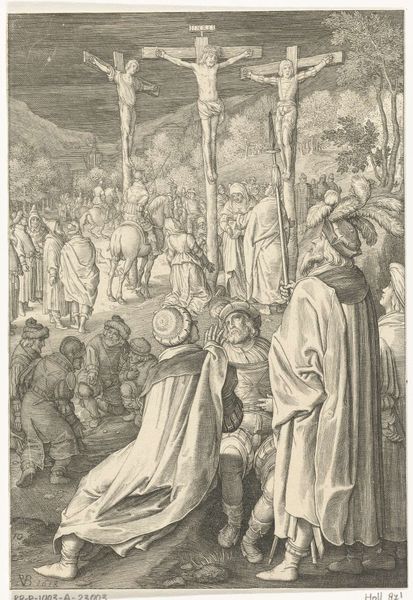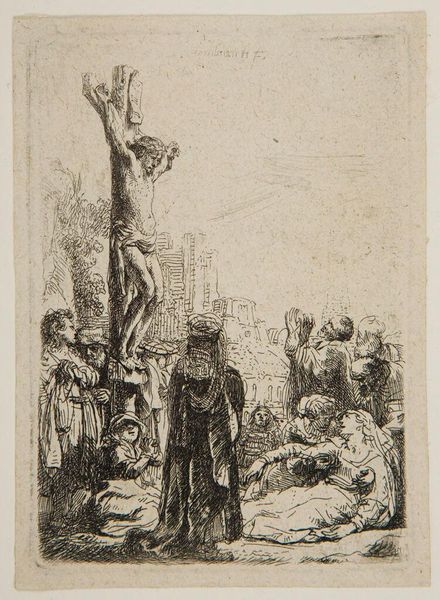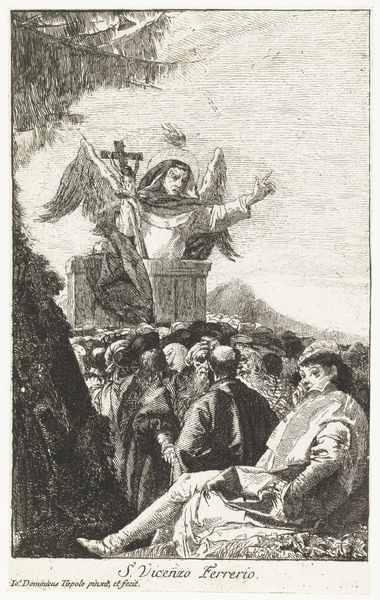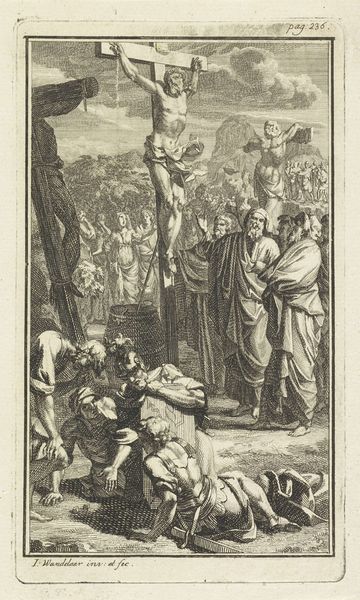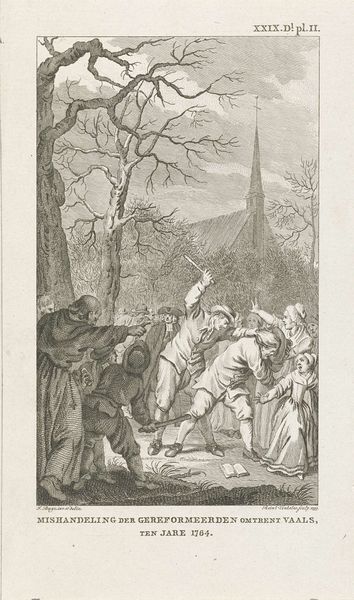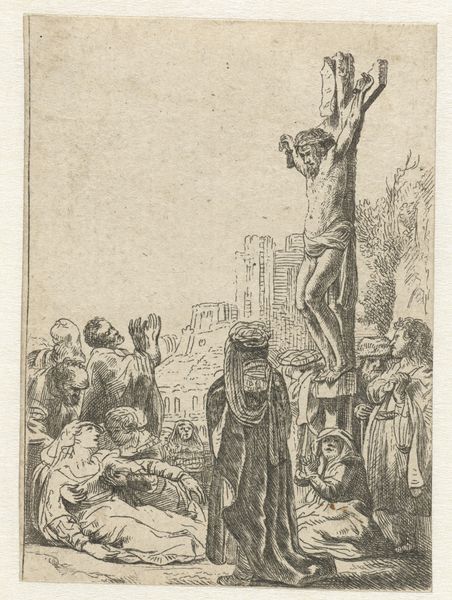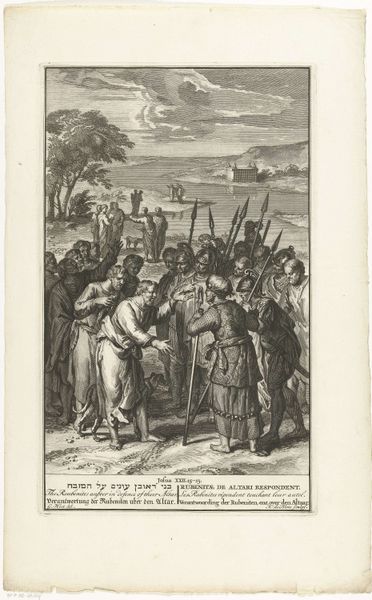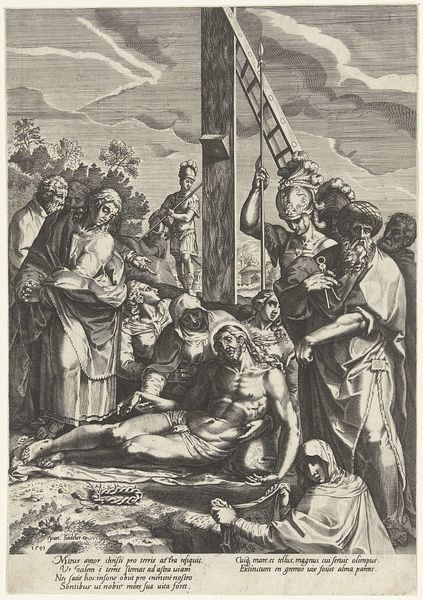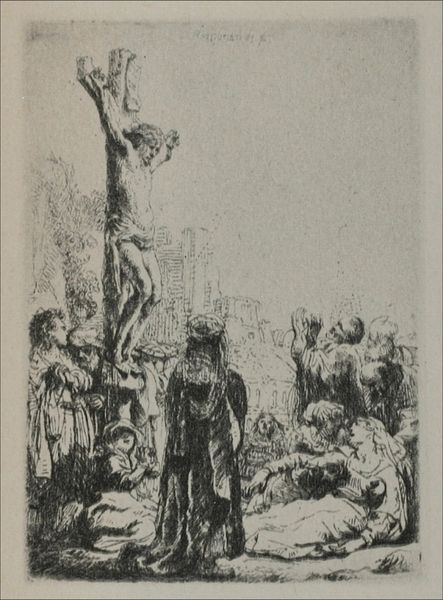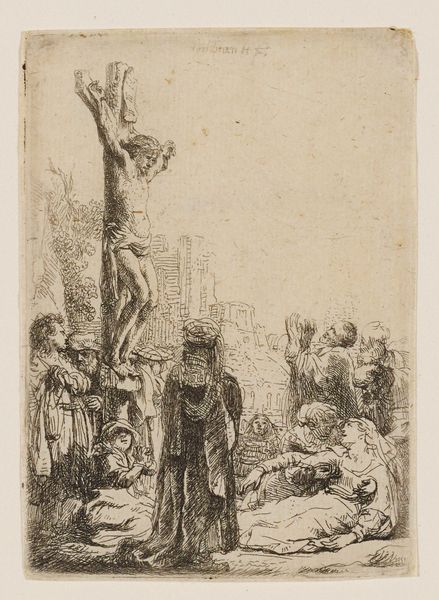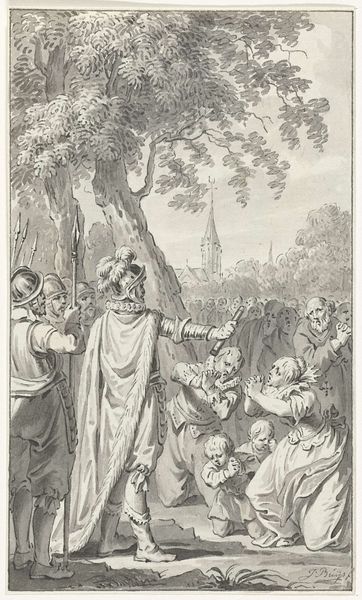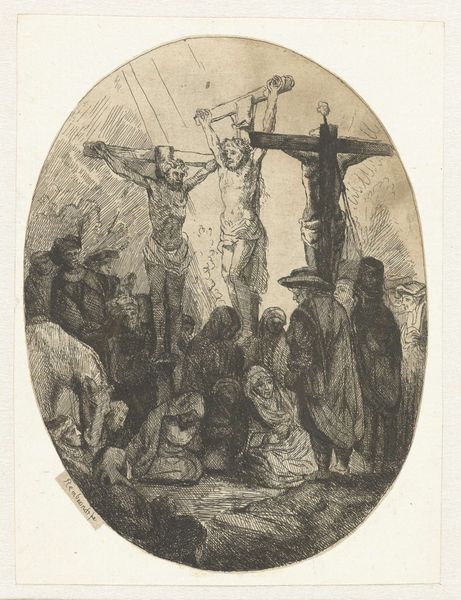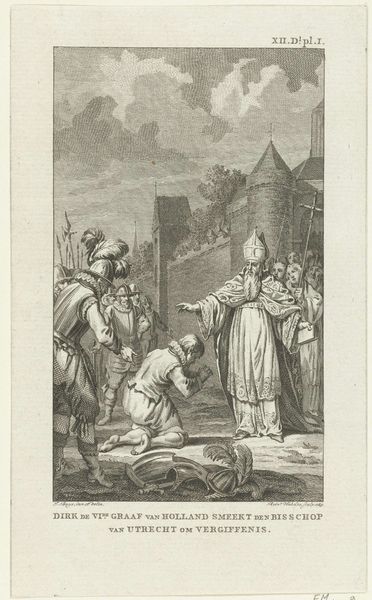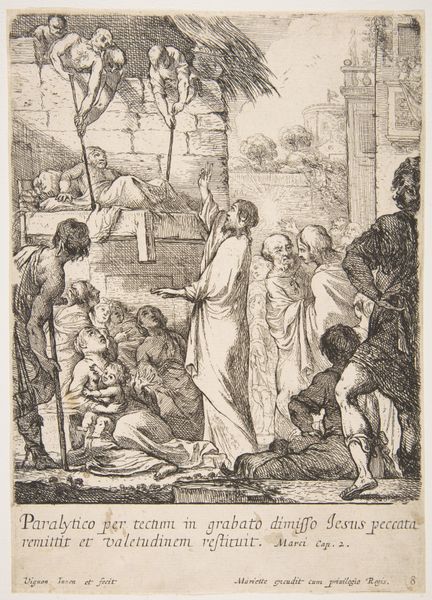
Heilige Helena en het wonder waarbij dode tot leven komt bij het ware kruis 1748 - 1752
0:00
0:00
drawing, print, etching, ink, engraving
#
drawing
#
narrative-art
#
baroque
# print
#
etching
#
figuration
#
ink
#
cross
#
history-painting
#
italian-renaissance
#
engraving
Dimensions: height 212 mm, width 130 mm
Copyright: Rijks Museum: Open Domain
Giovanni Domenico Tiepolo made this print using etching, a process rooted in skilled labor and material precision. The artwork depicts Saint Helena and a miracle involving the True Cross, rendered through a dense network of etched lines. Tiepolo’s technique involves covering a metal plate with a waxy, acid-resistant ground. The design is then scratched into this ground, exposing the metal. When the plate is immersed in acid, the exposed lines are bitten, creating grooves that hold ink. This process demands careful control and expertise. The depth and density of the etched lines give form to the composition, imbuing the scene with texture and depth. The resulting print, made from readily available materials such as metal, wax, and ink, then disseminated through a growing market for printed images. Consider the social context: etching allowed for the relatively quick reproduction of images, making art more accessible to a broader audience, but also commodifying the creative process, and highlighting the labor inherent in its production. By focusing on the materials and making of this artwork, we gain a deeper understanding of its cultural significance, challenging traditional distinctions between fine art and craft.
Comments
No comments
Be the first to comment and join the conversation on the ultimate creative platform.
